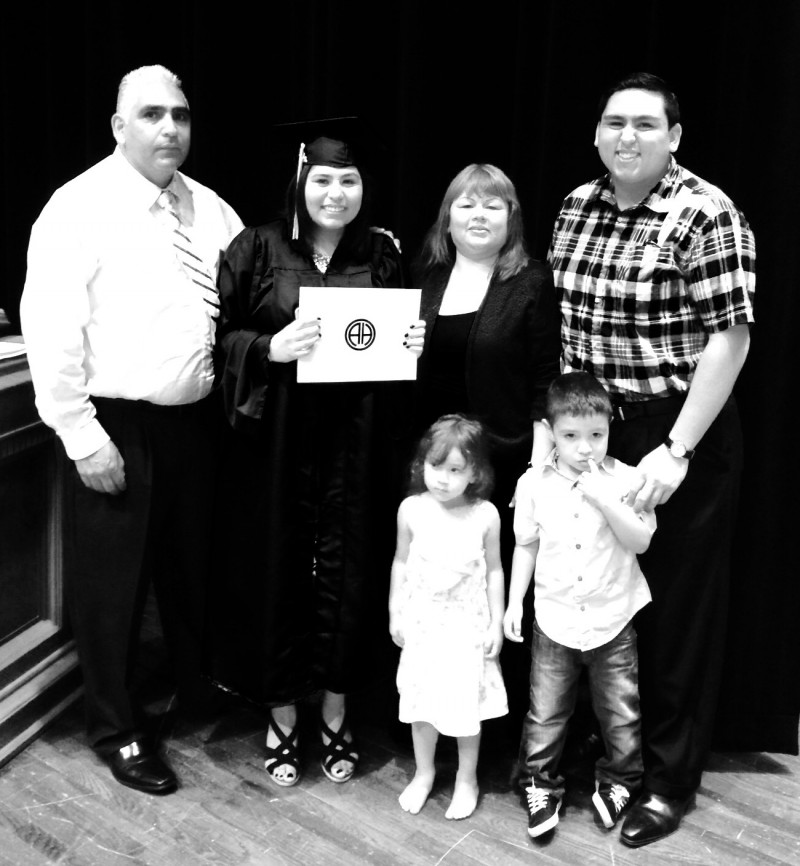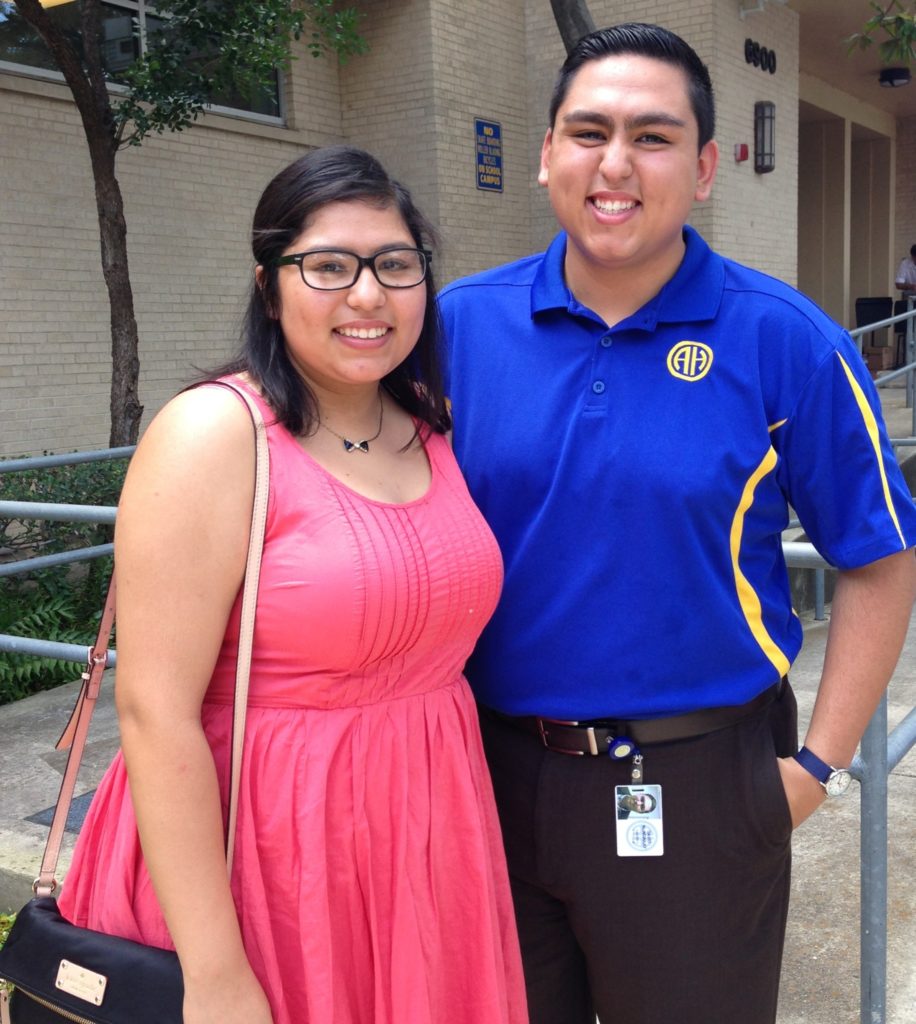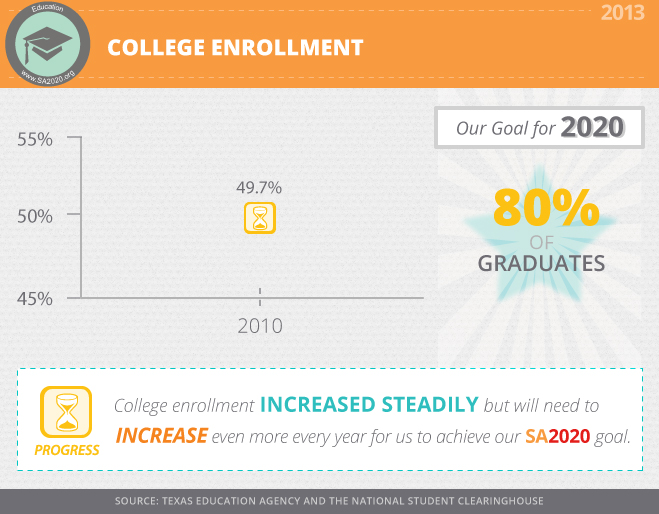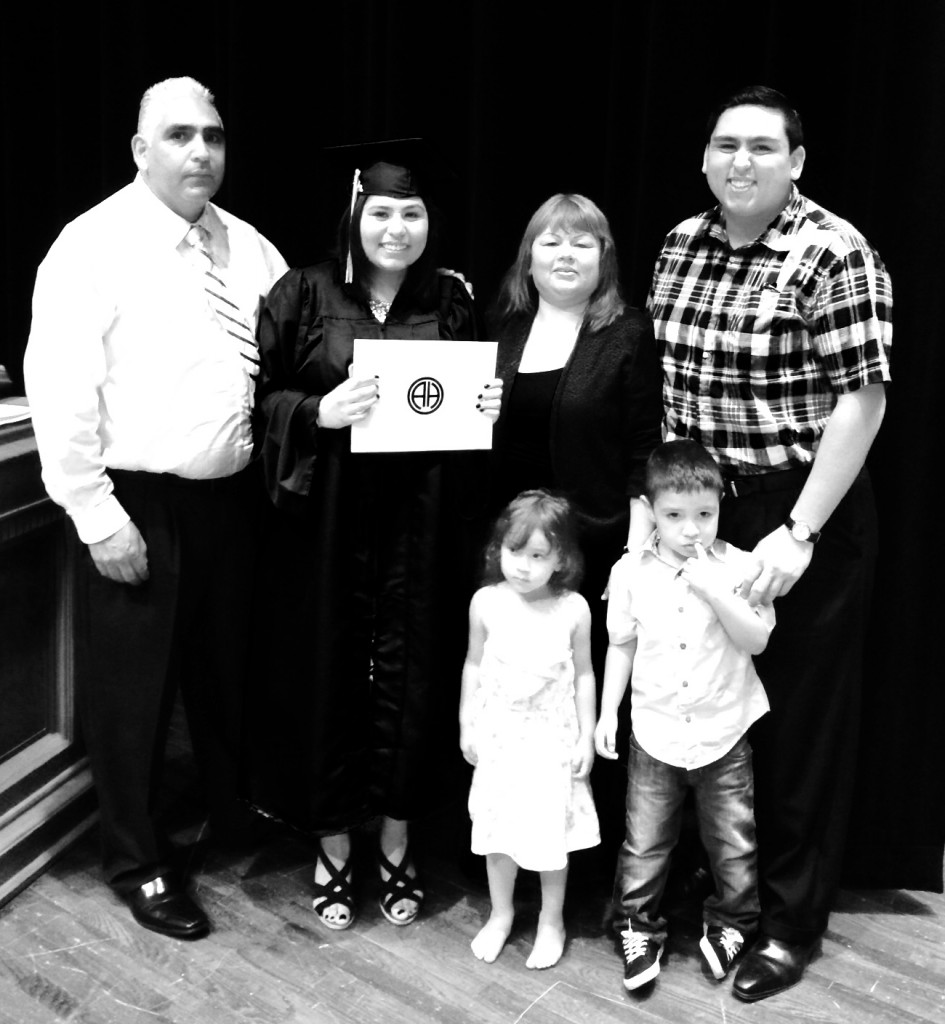Throughout college, I always dreaded the yearly meeting with the business office at my university. I never quite knew how I would pay for the tuition to clear the hold I had to register for classes. Even as I entered my senior year of college, I could not believe that $1,000 stood between me and registering for my last year of school. Thanks to so many people along the way, I was the first in my family to graduate from college, defying the statistics out there about first-generation students.
Several years out of my undergrad experience, I am now witnessing my younger sister, Alondra, navigate the college enrollment process. In just one month, she will begin her coursework at San Antonio College, and I am excited to see her reach her dream of attending a higher education institution. As I watch her complete each step from her college checklist, I have been reflecting on the challenges and opportunities that lie ahead for my sister and others like her. I have also come to the clear conclusion that everyone in our village, otherwise known as San Antonio, can play an integral role in supporting students on their path to becoming productive and contributing citizens.
After recently hearing a story from National Public Radio, I learned that 33% of incoming college students are first generation enrollees. Unfortunately, few will graduate within six years, if they graduate at all. Alondra is part of our family’s first generation to go to college, and I was the first person in our family to go to college back in 2006. Since then I have had the opportunity to graduate from Chapman University, to serve as a teacher in San Antonio Independent School District as well as an instructional coach with Teach For America, and I recently completed my masters at Trinity University in San Antonio. With my education and experiences in hand, I now serve as an assistant principal at Alamo Heights Junior School.
Through my work in education, I am very aware of our city’s commitment to “orchestrating one of the greatest turnarounds in education.” We have set ambitious goals to increase the number of high school graduates, students who are college ready and enroll in college, as well as increasing the number of adults with college degrees in our city. These goals fuel the work that I do in education broadly as well as an assistant principal. I believe deeply in our children, the families that support them, as well as the people at all levels in our education system that impact kids’ lives.
At the time I turned 24, I knew that getting a birthday card was probably in store for my big day, or maybe a gift card if I got lucky. It’s not quite the monumental age of turning 21, yet it was not the midyear point to 30 either. Instead, on my 24th birthday, my gift was welcoming my little sister to our city, not for vacation, but rather to finish out her high school experience.
I had visited my family in California a month prior and set up parent-teacher conferences at her high school, my alma mater. According to her teachers, Alondra was “polite,” “respectful,” and she always did her homework. It was clear, though, that she did not have all the resources available to help her excel academically. I experience firsthand the opportunities that result from a great K-12 public education—I wanted my sister to have access to an excellent education as well.
I immediately went to my parents and proposed that Alondra move to San Antonio to finish her high school experience. We then explained the idea to my sister and without skipping a beat she said yes. That night I bought her flight to San Antonio and headed out a few days later myself. One month went by as I prepared to take guardianship, get her ready for registration, and made preparations in our living situation.
She came and quickly acclimated to her new school, Alamo Heights High School. She was plugged into band, orchestra, and her peers welcomed her, intrigued by her California origins and circumstances for being here. The friendships she has made all the difference, as did all of her teachers. It also helped that I knew how to navigate a lot of the school system, and that Alondra and I have a large support system of friends in San Antonio. It literally took my village to help raise her and to help her graduate, and I am so thankful for their support.
The tricky part, however, was getting her to college. That was a promise I had made to her and my parents in bringing her to San Antonio. Her college advisor at Alamo Heights provided great support, yet I still struggled to help her throughout the process. It had been years since I had clumsily gone through the process myself as a first generation college applicant, and even while in a masters program, I did not know all the answers. It is a complex experience to navigate the college application process, let alone as a first generation student.
After getting denied admissions from a few colleges and universities, we decided to go the local community college route. Along the way, we had the support of Audree Hernandez, Regional Program Manager for the Trinity University College Advising Corps. The College Advising Corps is a non-profit organization whose mission is to increase the number of first-generation college going, low-income, and/or underrepresented students who apply, enter, and complete higher education. Audree’s one-on-one work with Alondra speaks to the power of the unsung heroes we have working in education at all levels to support our kids going on to higher education, and succeeding while they are there. Audree has shown me the complexity of working with students like my sister in the college application and enrollment process. She continues to meet with Alondra as we finalize her enrollment and registration at San Antonio College.
For our city to reach its goals in education, we need more Audrees to lead, support, and empower our kids. We are fortunate in our city to have an established home for Café College. The Diplomas Now program is at Burbank High School and Rhodes Middle School. The San Antonio Education Partnership has launched a collaborative effort with the Lumina Foundation to increase the post-secondary attainment of Latino students. The P-16 Council continues to coordinate excellent opportunities in our city. And not too long ago, the First Lady of the United States launched her key education initiative, #ReachHigher in San Antonio.
In order to reach our goals in education, we must continue to focus on building a strong pipeline from pre-k to 12th grade by continuing to offer, strengthen, and increase resources like the ones I mentioned above. We must get more families informed and engaged. We must continue support and train our teachers to move towards a culturally responsive and 21st century approach to teaching. We must leverage strong leadership in district and school administrative roles. These are by no means any small lift and I feel blessed to know there are people working all around our city to make it happen. I know our village is committed to increasing excellence in San Antonio.
While my sister continues on this process, I know from going with her to the San Antonio College admissions office that there are many others like her out there. Many more are coming up through our education system, including the students that I taught. I know that together we can make a difference in their lives, and I am personally committed to continuing my work in education here in San Antonio so that all students can have the opportunities they deserve.




